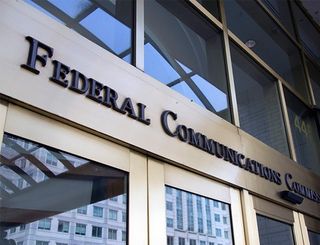FCC Denies KMTP Must-Carry Election Complaint

The FCC has ruled that satellite carrier Dish was within its rights to deny must carry to a San Francisco noncommercial TV station because the station used Priority Express Mail rather than certified mail to make its carriage election, signaling that the station's letter was trumped by the letter of the law.
The FCC conceded, in rejecting the complaint from the station, that KMTP TV San Francisco made its mandatory carriage election in plenty of time, that Dish received the letter--it was sent Sept. 27, 2017 for a Jan. 1, 2018 election deadline--and that it included all the required information.
The station, licensed to the Minority Television Project, provides multicultural programming to the Bay Area market including targeted to African Americans, so the decision has the effect of reducing the footprint of a TV station proving diverse programming, though according to its Web site, one of those diverse programmers is the controversial RT Russia Today, which has had to register as a foreign agent in the U.S.. That has raised the issue of whether its carriage can be compelled.
Dish rejected the election, pointing to the letter of the law about proper election correspondence: "Pursuant to federal regulations, elections for mandatory carriage must be sent by certified mail, return receipt requested. Your letter was sent to DISH by United States Postal Service Priority Mail, and therefore is not a valid election. As such, your election is rejected based on the foregoing.”
Asked if keeping RT off its air factored into its strict reading of the must-carry election process, a Dish spokesperson said: "Dish follows the must-carry rules as prescribed by the FCC for all broadcasters electing must carry status. Dish receives hundreds of election letters each year, and applies the rules equally for each broadcaster."
The station complained, saying that Certified Mail is actually a "lesser included service" to Priority Express Mail, that Priority Express Mail did not exist when the rule was adopted, and that Dish was "attempting to place form over substance."
Dish countered, essentially, that the rule was the rule and that the FCC could have changed the rules to include Priority Express if it wanted to.
The FCC sided with Dish over the primacy of the form and the “letter,” as it were, of the law. "DISH maintains that, because the rule explicitly requires election notices to be sent by certified mail, return receipt requested, it is under no obligation to carry the station," the FCC's Media Bureau said in denying the station's complaint. "Based on the record, we deny KMTP’s Complaint. As explained above, KMTP’s mandatory carriage election was sent to DISH by priority express mail, and the issue before us is whether it was proper for DISH to reject KMTP’s carriage election for this reason. We conclude that the rejection was permissible under our rules because KMTP did not adhere to the Commission’s clear and express procedural requirements regarding the manner in which carriage elections must be sent.
"The provision does not indicate that this is a suggested method, or a preferred method, and we therefore need not decide whether priority express mail is an equivalent or better service, as KMTP suggests," bureau senior deputy chief, policy division, Steven A. Broeckaert said. "Because KMTP failed to send its carriage election by the method required under our rules, we must deny its complaint."
Broadcasting & Cable Newsletter
The smarter way to stay on top of broadcasting and cable industry. Sign up below
Contributing editor John Eggerton has been an editor and/or writer on media regulation, legislation and policy for over four decades, including covering the FCC, FTC, Congress, the major media trade associations, and the federal courts. In addition to Multichannel News and Broadcasting + Cable, his work has appeared in Radio World, TV Technology, TV Fax, This Week in Consumer Electronics, Variety and the Encyclopedia Britannica.

